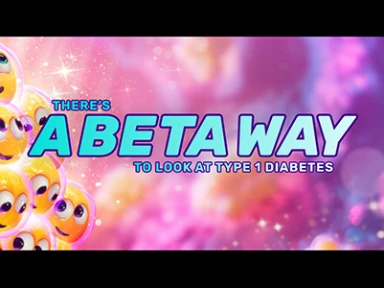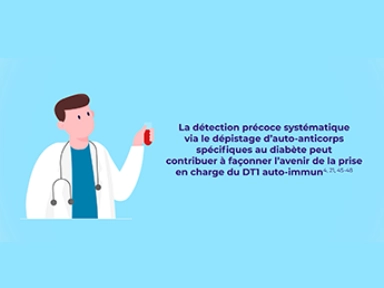Diabète De Type 1
Articles


Understanding Autoimmune T1D & The Value of Early Detection
Autoimmune Type 1 Diabetes (T1D) can be detected through islet autoantibody testing years before symptoms appear.1-2 The video here explains how the condition progresses silently through presymptomatic stages, with beta cell destruction occurring long before symptom onset and clinical diagnosis.4-8

When a Child Gets Autoimmune Type 1 Diabetes
Parent's experiences of stage 3 diagnosis of T1D.

Real-life stories from people living with autoimmune T1D
The progression of autoimmune type 1 diabetes (T1D) is gradual, often detectable months or even years before symptoms arise.1–3 Through proactive screening, we can identify the condition well in advance.3 Meet our ambassadors living with autoimmune T1D and discover the risk factors to look out for when considering who to screen.

Can autoimmune type 1 diabetes be detected years before symptom onset?
Autoimmune type 1 diabetes (T1D) is a progressive disease in which the decline in beta cell function usually begins months or sometimes years before clinical symptoms are observed.1–3 You can identify such patients at risk of developing autoimmune T1D before clinical symptoms are noticed by you or your patient.3

Does your patient have an existing autoimmune condition? Check for autoimmune type 1 diabetes!
Individuals living with other associated autoimmune diseases like celiac disease or autoimmune thyroid disease, are at an increased risk of developing autoimmune type 1 diabetes (T1D) and should be appropriately screened.1-6

How should individuals with positive autoimmune T1D autoantibodies be monitored over time?
Individuals who screen positive for ≥1 autoimmune islet cell antibodies need periodic medical monitoring, which includes regular assessments of blood glucose and HbA1c levels. You can also educate them about symptoms of diabetes, diabetic ketoacidosis (DKA), and provide psychosocial support to prepare them for a possible clinical diagnosis for type 1 diabetes (T1D).1

Early detection of autoimmune type 1 diabetes could reduce the risk of diabetic ketoacidosis
Delay in screening for autoimmune type 1 diabetes (T1D) can increase the risk of diabetic ketoacidosis (DKA) at diagnosis—a critical complication that is potentially life-threatening and may result in long-term poor glycemic control and neurological complications.1,2 By identifying autoimmune T1D early, you can significantly lower the risk of DKA at diagnosis.3,4
Leave site modal
Vous êtes sur le point de quitter campus.sanofi/be. Sanofi n'est pas responsable du contenu de ce site externe.
Les contenus accessibles par ce site sont destinés exclusivement aux Professionnels de Santé.
Les contenus accessibles par ce site sont destinés
exclusivement aux Professionnels de Santé.
Sanofi met a votre disposition, sur un portail unique dédié aux professionnels de santé, des contenus exclusifs comprenant des contenus scientifiques et des outils pour votre pratique quotidienne.

